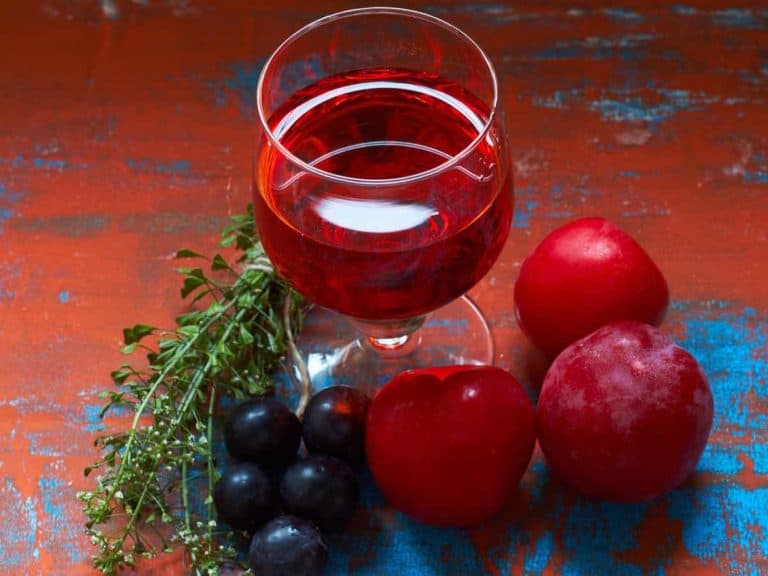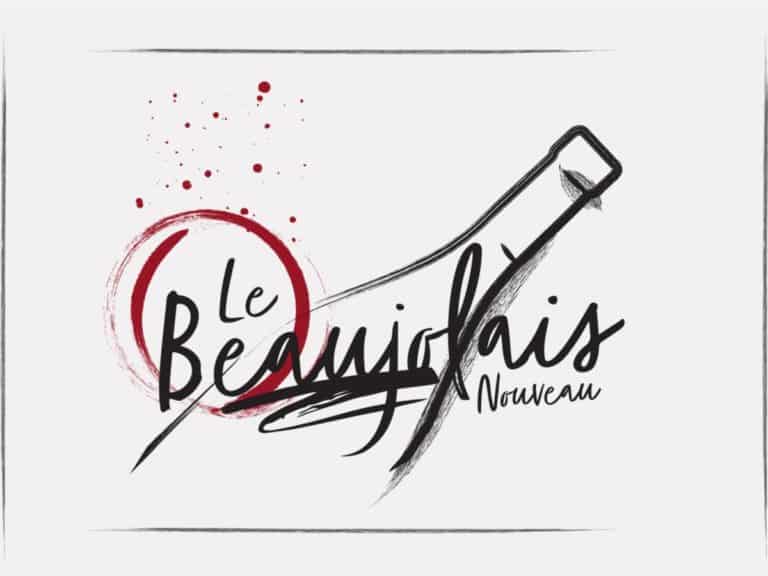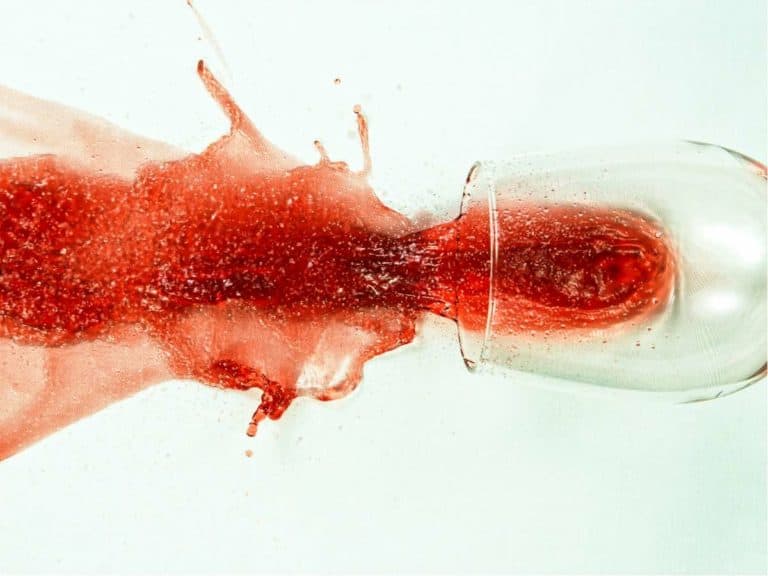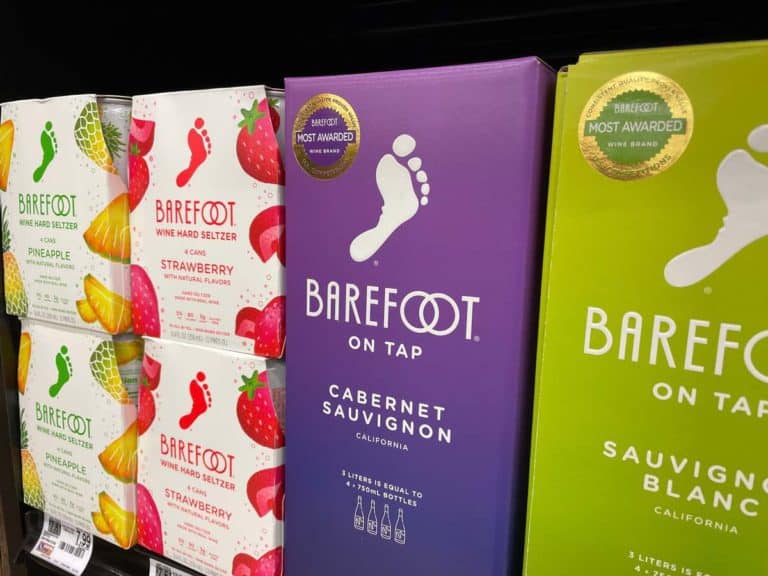Is Rosé Wine Bad or Good for You?
Rosé has risen in popularity, often making an appearance on dinner tables in warmer months in place of its bolder cousin. We’ve all heard about the health benefits of drinking a nightly glass of red wine, but how does rosé compare? Is rosé wine bad for you, or is it also a great drink for your health?
In total, rosé wine is healthier than white wine but doesn’t contain nearly as many antioxidants as red wine. Nevertheless, rosé has similar health benefits to red wine, including cardiovascular health and resveratrol.
From its pretty blush hue to its light, refreshing taste, rosé is a favorite that can be enjoyed with or without a food pairing. However, it’s important to know where it stands on the health spectrum. Below, we’ll dive into what impact rosé has on your health and how it compares to red and white wines.

How Rose Wine is Different From Reds and Whites
Rosé wine is a sort of wine that utilizes only a portion of the skin color of a grape in its production. It is generally made in three ways:
- skin contact
- saignée
- ‘blending.
All grapes, regardless of hue, generate clear juice. Wines receive their color through the interaction of the juice with the skin of the grapes, not from the liquid itself. The pigment from the skin of the grape seeps into the juice when the skins and juice soak together.
While rosé wine is made in the same way as other red wines, the time it spends fermenting with grape skins is reduced. As a result, Rosé gets its characteristic pink hue from the reduced skin contact.
Rosé wines can be created still, semi-sparkling, or sparkling, and in various sweetness levels ranging from extremely dry to sweet. Rosé wines are prepared from a variety of grapes and are produced and marketed in multiple nations across the world.
Top 4 Health Benefits of Drinking Rose Wine
People have been drinking wine for thousands of years, and we’ve all heard the advice about drinking a glass a day. In addition, there is plenty of research suggesting that consuming wine in moderation has various advantages. But what are they?
Improves Cardiovascular Health
Rosé wine has a variety of helpful chemicals, including potassium, which helps reduce blood pressure by counteracting the adverse effects of salt in the blood.
Additionally, rosé wine’s anti-inflammatory properties can minimize the risk of rheumatoid arthritis and the risk of heart disease and heart stroke.
It’s important to keep in mind that the positive effects are associated with modest use. These advantages are negated by excessive alcohol consumption.
Low-Calorie Drink Option
We all know how important it is to be vigilant about what we put into our bodies. Another advantage of rosé wine is that it is low in calories. A five-ounce glass of rosé wine has around 100 calories, depending on the sugar and alcohol concentration, making it one of the lowest-calorie alcoholic beverages. Plus, because wine is high in antioxidants, you’re not simply consuming empty calories.
Can Lower Bad Cholesterol Levels
Rosé wine has a variety of beneficial compounds, including antioxidants and anti-inflammatory chemicals. Polyphenols included in rosé wine have been shown to possibly aid in the reduction of LDL or bad cholesterol. While alcohol, which is also present in rosé wine, thins the blood and increases good cholesterol (HDL).
Rich In Resveratrol
Red wines are abundant in resveratrol, a powerful polyphenol found in grape skins. This anti-aging compound is responsible for many of the health advantages linked to wine, including brain health, blood vessel protection, and a lower risk of heart disease.
Furthermore, several studies have connected resveratrol to weight loss. However, because rosés are created with only a brief contact between the grape skins and the juice, resveratrol infuses at a lower level than in red wines.
Cons of Drinking Rosé Wine
Compared with its red and white cousins, rosé wine gets a lot of flak from wine snobs. While it has many of the health benefits found in red wine, there are some cons to be aware of.
It’s Best in Moderation
Wine is well-known for having health-promoting effects. However, there are certain adverse side effects linked with alcohol consumption, and not everyone should consume these beverages.
Long-term health hazards connected with excessive alcohol use, according to the CDC, include:
- high blood pressure
- heart disease
- mental health conditions
- liver disease
- a weakened immune system
- alcohol use disorder
As a result, people should aim to drink rose wine in moderation. Stick to a glass a day and look for dry wines to avoid any excess sugar.
Rosé Wine Doesn’t Age Well
Drink fresh, younger wines to get the most out of your rose. These have more antioxidants and have a more vibrant flavor. Rosé, unlike red wine, does not get better with age. Avoid drinking anything that is more than two or three years old.
Does Rose Wine Have the Same Health Benefits as Red Wine?
Rosé wine has almost the same health advantages as red wine, including better cardiovascular health and strong antioxidants. However, rosé wine does not appear to provide as many health advantages as red wine.
Rosé wine has a polyphenol content that falls between red and white wine. The deeper the color of a wine, the longer the grape juice is in contact with the skins throughout the fermentation process, allowing the wine to collect more of the skin’s polyphenols.
When choosing between rosé and white wine, rosé is the healthier option due to its higher antioxidant content and the possible health advantages of polyphenols.
Bottom Line
Rosé is the quintessential summer wine, but that’s not all it has going for it. This wine’s gentle, fresh flavor awakens your taste buds and comes in a range of pink hues. It provides many of the same health advantages as red wine while being healthier than white wine.
So, the next time you’re in the wine aisle, don’t be afraid to pick up a bottle of rosé and reap the benefits.
Read Also: Cooking with Rose Wine: Practical Guide





